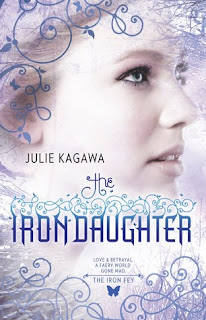I'm feeling too heavy-in-the-mind for a book review today (trying to make Big Decisions, and failing to get anywhere with them) but I thought I'd have a go at a meme I saw over on Harriet Devine's blog - do have a go yourself if you'd like.

What is your favourite drink while reading?
A nice cup of tea. Earl Grey tea if it's the evening.
Do you tend to mark your books while you read, or does the idea of writing in books horrify you?
It does rather horrify me... I make tiny pencil marks on the back of the title page, to denote pages I want to cite in a review. Biros aren't allowed anywhere NEAR my books. Although, ironically, I do quite like it when other people have written in books before I buy them.
How do you keep your place? Bookmark? Dog-ears? Laying the book open flat?
I use a selection of art postcards as bookmarks, trying to match up the painting to the feel of the book... or the colour of the book, if I'm feeling superficial.
Fiction, non-fiction or both?
Usually fiction, but my favourite reads of the last few years have all been non-fiction... but I still read about 80% fiction, I'd estimate.
Do you tend to read to the end of a chapter or can you stop anywhere?
I stop anywhere, sometimes mid-sentence if I'm suddenly sleepy!
Are you the type of person to throw a book across the room or on the floor if the author irritates you?
Only metaphorically... I don't remember actually ever doing it.
If you come across an unfamiliar word, do you stop and look it up right away?
Sometimes, especially if I've seen a word I don't recognise a few times in the same week. And almost invariably I immediately forget what the word means. I think my brain has reached saturation point...
What are you currently reading?
Let's see... The Sandcastle by Iris Murdoch, More Talk of Jane Austen by G.B. Stern and Sheila Kaye-Smith, The Eye of the World by Robert Jordan... actually, I think that's it. Very unusual - I'm usually reading at least six or seven.
What is the last book you bought?
That would be An Experiment with Time by J.W. Dunne.
Do you have a favourite time/place to read?
Any place, any time! Not that much in bed anymore, but quite often on my bed. Actually most of my reading probably takes place on public transport.
Do you prefer series books or stand-alones?
Stand-alones, definitely. I do get a bit snobby over series... though I don't really know why.
Is there a specific book or author you find yourself recommending over and over?
Hahaha, more or less anybody who has ever met, seen, or heard of me will have had Miss Hargreaves by Frank Baker recommended to them at some point.
How do you organise your books (by genre, title, author's last name, etc.)?
In Somerset, they're arranged by author; in Oxford... well, they're grouped vaguely by things I think are similar in mood. It wouldn't make sense to anyone else, but it works for me... but I have to keep the ones in Somerset in some sort of rational order, because I expect Mum and Dad to be able to find things I want them to post to me!
Barbara's additional question: background noise or silence?
Hmm... I like music playing in the background when I read, but not chatter or television. Somewhere between the two.































